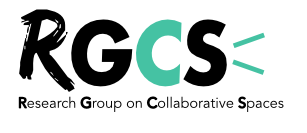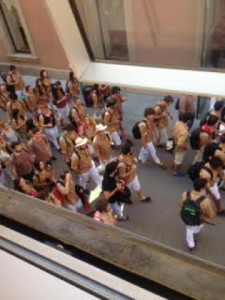The FNEGE (Fondation Nationale pour l’Enseignement de la Gestion d’Entreprise) will launch in January 2018 a study about new work practices.
It will be an opportunity to explore the relationships between the new world of work (e.g. collaborative entrepreneurship, freelancing, mobile work, remote work, coworking, makers, DIY…) and the old, secular world, of academia. Participants will analyze the possible role of universities and business schools in the transformation of organizations and society, what they do and what they could do to participate to these transformations. They will also analyze how new work practices could be adopted further by universities and business schools.
Pierre-Yves Gomez (EMLyonbusinessschool, IFGE) and François-Xavier de Vaujany (PSL, Université Paris-Dauphine, DRM) will be the coordinators of this project whose results will be presented in front of deans in June 2018.
L’enquête FNEGE 2018 will be in partnership with l’IFGE and RGCS.
For more information: Enquête FNEGE … Read more

